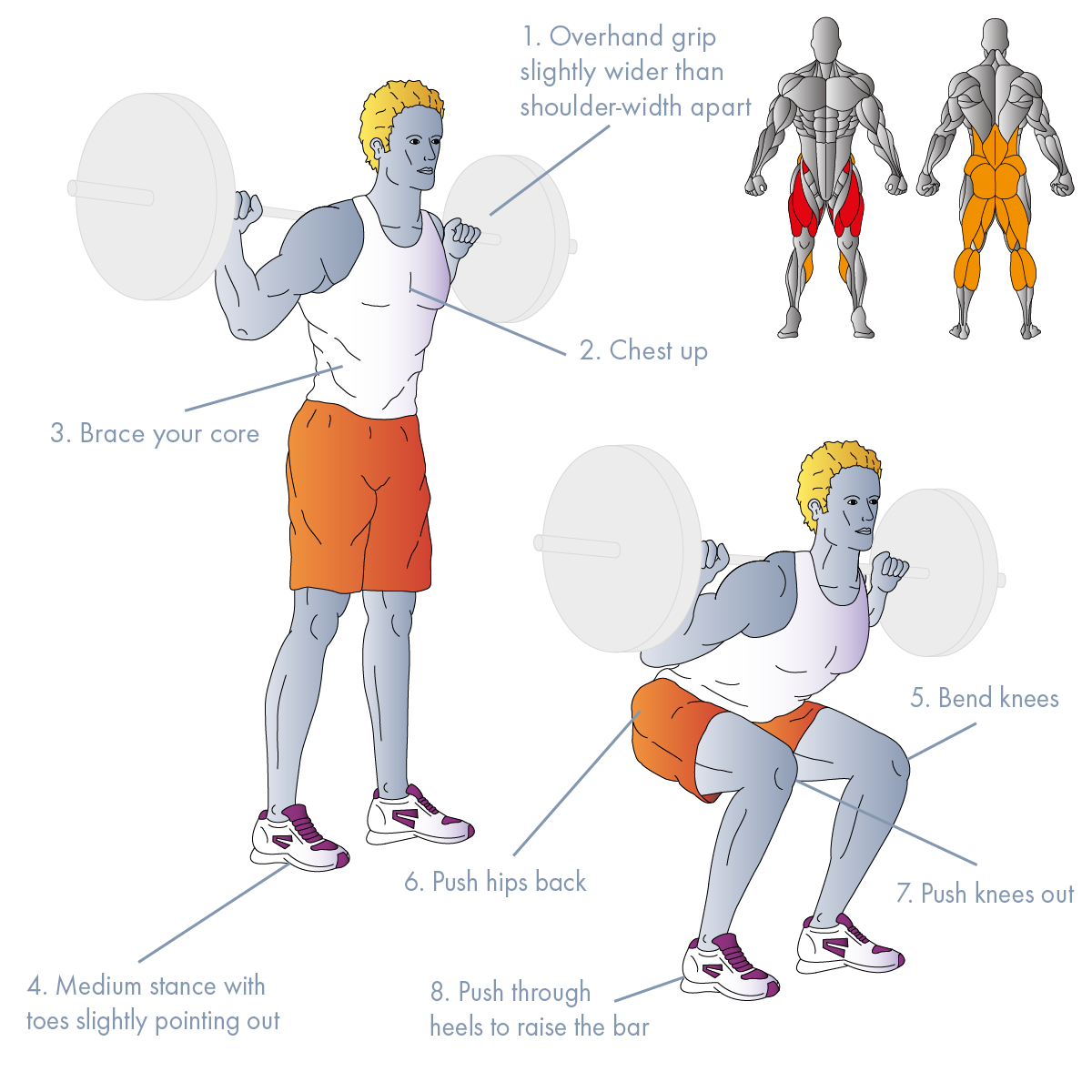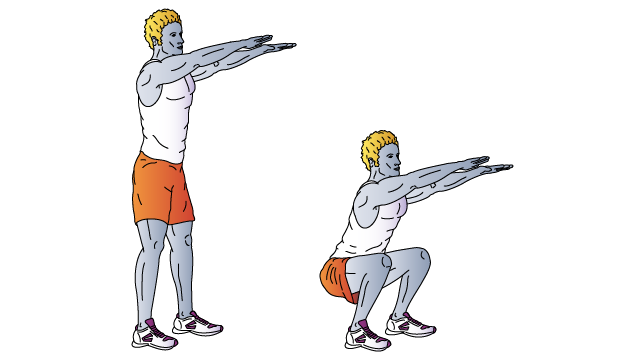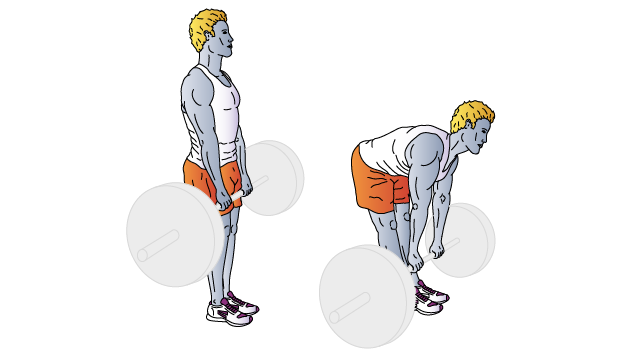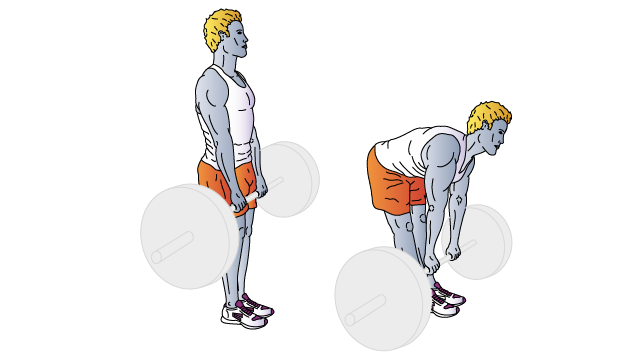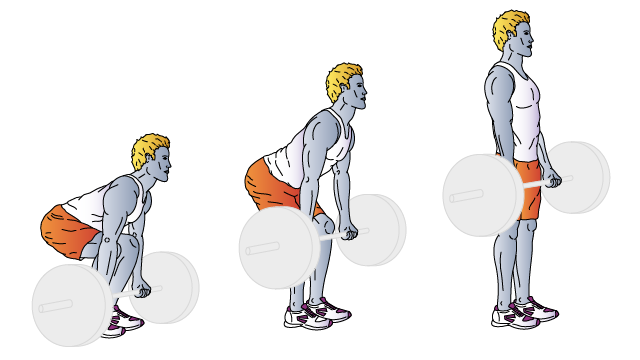BACK SQUAT
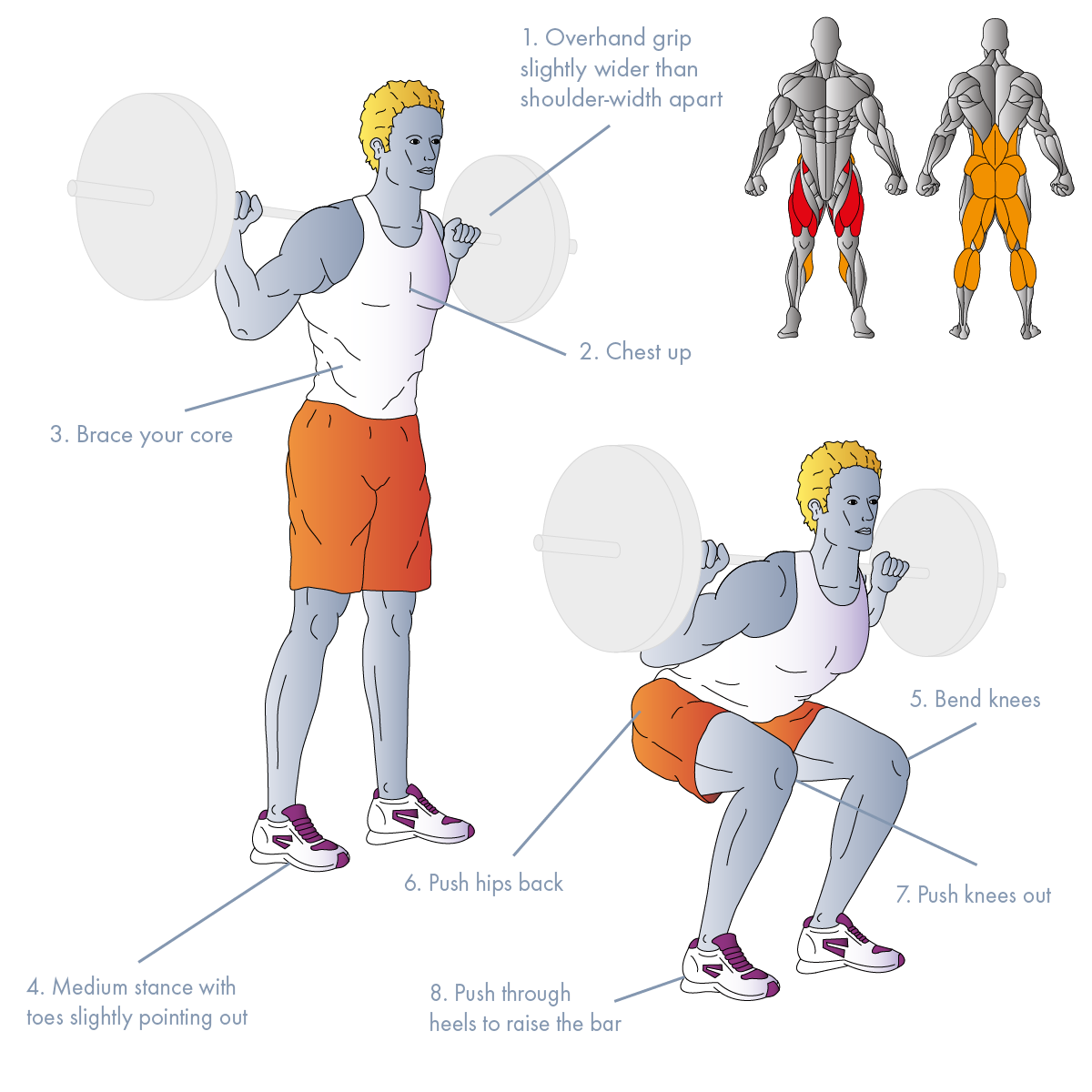
The Barbell Back Squat is a fundamental strength exercise for the lower body, but its effectiveness as a core strengthening exercise is less widely known. This exercise allows for heavy weights to be used, and as such is ideal to challenge your entire body and achieve exercise overload, thereby making it one of the most effective mass building exercises out there.
If you suffer back issues, consider substituting this exercise with the dumbbell squat. For safety reasons perform this exercise in a squat rack.
Skill Level: Intermediate
Training: Strength
Type: Compound
Force: Push
Equipment: Barbell, Power Rack/Squat Rack
1° Muscles: Quadriceps
2° Muscles: Calves, Glutes, Hamstrings, Spinal Erectors (Lower Back)
SET-UP
- Set an empty bar on a squat rack just below shoulder height, and then load an appropriate weight.
- Step under the middle of the bar, bending at your knees and hips so that it makes contact with your shoulders just below your neck.
- Hold the bar with an overhand grip (palms facing forward) slightly wider than shoulder-width apart.
- Unrack the bar by pushing up with your legs and immediately straightening your torso.
- Step back from the rack and stand with a medium stance (feet shoulder-width apart) with your toes slightly pointing out.
- Stand tall (neutral spine, chest up, chin up).
- Brace your core, and maintain a tight midsection for the entire exercise.
EXECUTION
- Inhale as you slowly lower the bar by bending your knees and hips whilst maintaining a neutral spine and keeping your head up.
- Push your hips back and knees out as you continue down until the angle between your upper leg and lower legs is at least 90 degrees.
- Pause at the bottom of the lift.
- Exhale as you push through your heels and drive through your hips to raise the bar, straightening your legs until you return to the start position - avoid locking your knees at the top of the lift.
- Repeat for the prescribed number of reps and sets.
- Even if you do not suffer back issues, pay particular attention to form, ensuring that you never slouch as this can lead to lower back injury.
- Be realistic about the weight you use; if in doubt, use less weight.
- Avoid leaning forward as you descend. The bar should follow a vertical line down all the way down.
- Avoid allowing your knees to significantly pass your toes to avoid placing undue stress on your knee joints – a small degree is permissible but the actual amount will vary between individuals depending on personal biomechanics.
- Push through your heels when raising the bar. If they lift off the ground place a weight plate under each heel to enable you to push through them.
- Dumbbell Squat
- Barbell Front Squat
- Overhead Barbell Squat
RELATED EXERCISES
Top

